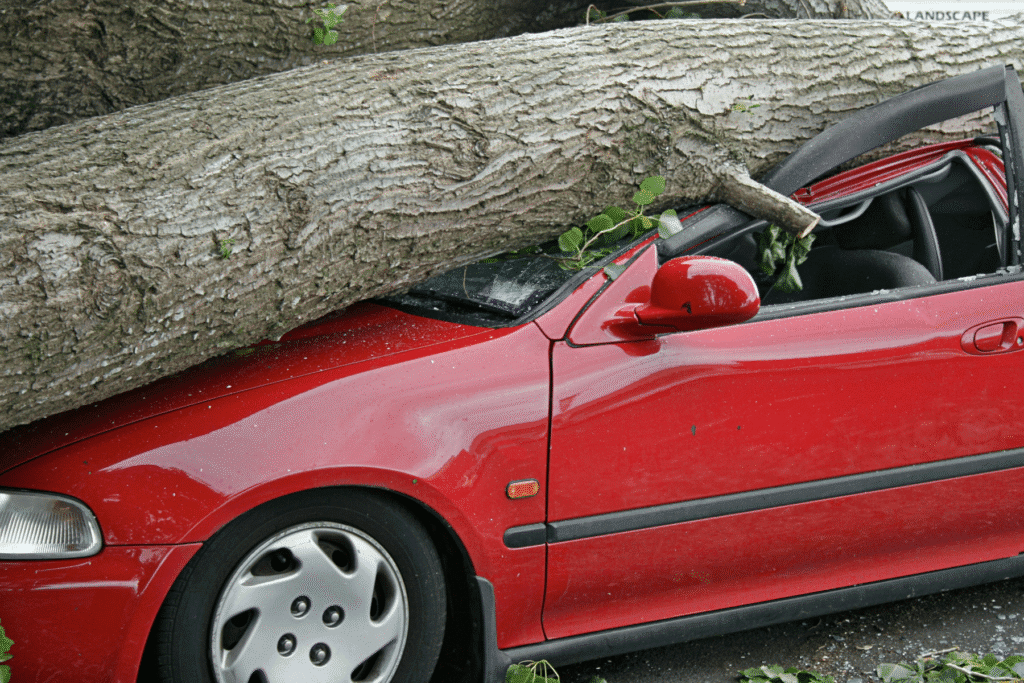Who is Legally Responsible
When you’re involved in a car accident, determining who is legally responsible often comes down to questions of fault, negligence, and foreseeability. But what happens if no one is at fault—if the cause was completely out of human control? That’s where the legal concept of an “Act of God” comes into play.
Defining an Act of God
In legal terms, an Act of God refers to a natural event that occurs without human intervention and could not have been prevented or predicted with reasonable care. Common examples include:
- Flash floods
- Earthquakes
- Lightning strikes
- Sudden severe storms
- Wildfires caused by natural causes (e.g., lightning)
If such an event directly causes a car accident, the driver might not be held liable—provided they were otherwise driving responsibly.
How This Affects Car Accident Liability in Arizona
Arizona is a comparative fault state. This means fault in car accidents can be divided between multiple parties. However, if the accident was solely the result of an Act of God, a driver may avoid liability altogether.
For example, if a massive dust storm in Lake Havasu causes zero visibility and leads to a multi-car pileup, the parties involved may not be considered negligent—especially if they were following traffic laws and reacting appropriately to conditions. But the situation can quickly change if a driver was speeding or failed to pull over safely.
Not a Catch-All Defense
It’s important to note: Act of God is not an automatic excuse. The defense must prove that:
- The event was entirely natural and unforeseeable.
- The accident would have occurred even if the driver had exercised reasonable care.
- There were no contributing human factors (e.g., distracted driving, bald tires, or mechanical failure).
If any human negligence contributed to the crash—even in a storm—the defense may not hold.
Real-World Scenarios
Imagine a driver in Scottsdale is struck by a falling tree during a microburst. If the tree was healthy and there was no warning, this may be deemed an Act of God. But if the tree was visibly rotting or the property owner had been warned about its condition, liability could shift toward human negligence.
Or consider a driver hydroplaning on wet roads during monsoon season. If they were speeding or driving on worn-out tires, they might still be found at fault—even though the rain was natural.
Insurance Complications
Insurance companies may try to use the Act of God argument to deny coverage or reduce payouts. That’s why it’s essential to have a skilled Arizona car accident attorney review your case. At Rideout Law Group, we’ve helped clients across Scottsdale and Lake Havasu navigate complex auto accident claims—including those involving severe weather or other natural events.
We can help determine whether:
- The accident qualifies as an Act of God
- Other parties may still share responsibility
- Your insurance company is acting in bad faith
Speak With an Arizona Auto Accident Lawyer
If you’ve been involved in a crash due to a natural event, don’t assume you have no legal options. Our legal team has decades of experience helping Arizona residents recover compensation after unexpected accidents—even in tough liability cases.
📍 Offices in Scottsdale and Lake Havasu
📞 Call today for a free case review:
- Scottsdale: (480) 584-3328
- Lake Havasu: (928) 854-8181
🌐 www.rideoutlaw.com
This blog post is for informational purposes only and does not constitute legal advice. Reading this content does not create an attorney-client relationship. For legal guidance specific to your situation, please contact a licensed attorney at Rideout Law Group.

